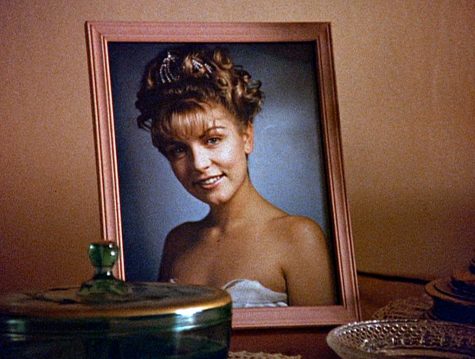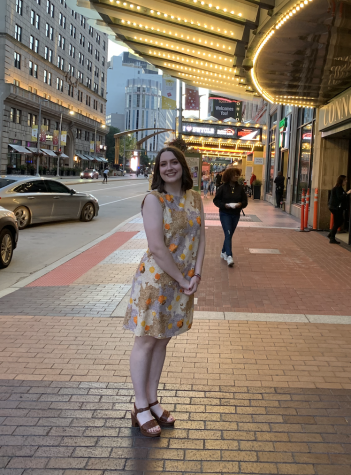Schuppel’s Scoop: trying to fill in the blanks
Mar 4, 2022
Humans find comfort in answering the unanswerable, or at least trying our best to find answers. Questions pertaining to existence, religion, higher powers, the government and everything in between keep so many of us up into the early hours of the morning. But it is rather freeing not knowing everything about the world, even if a lot of us hoped for omniscience.
When looking into the topic on unanswered questions in psychology, I came across a great quote in a GoodTherapy blog post. “The beg for answers, and in living with the unknown we are asked to bear an aching tension that I can only compare to the anticipation of waiting for a child being born. We long to fill

our empty hands with newborn knowledge, and for the relief of seeing that our nascent answer is strong and viable.” This is the perfect analogy for the situation of wanting knowledge: expecting parents will never know how to parent until their first shared moment with their child. Unfortunately for us, the world’s answers will take a bit more to understand.
On the basic, personal level, it can be unnerving to think about how little we know about ourselves. Our knowledge of self is often based on how others perceive us, as we only see ourselves in mirrors, photos or through the words of those around us. On a bigger level, ideas like religion have provided billions of people with answers to creation and those who might control our universe. The sense of purpose that religion has provided for people is a beautiful and sacred thing, but even the most devout individuals question the unknown.
Even in media, we have an expectation to be given every answer to every solution in the plot. I have learned to seek media that stumps me and leaves me with no answers. My favorite show of all time is “Twin Peaks,” co-created by the disturbing genius David Lynch. Audiences were furious that Lynch hadn’t revealed Laura Palmer’s murderer by the end of season one, but he never wanted to reveal that information to begin with. He is notorious for leaving

viewers with significantly more questions than answers, which just elevates the tension of not knowing in the world. But this can be an effective way of finding solace in our lack of understanding.
In thinking about unknowns, the previously mentioned GoodTherapy article highlights what is important to remember; the “temptations of false certainty” stuck out most. The first of the temptations is a false sense of security, where “the fact gatherer has done so much research, and calculated the outcomes so many different ways, they become convinced of their image of the outcome.” This can be especially damaging in the chance that reality reveals itself, as abandoning one’s own answers can damage the sense of self.
The other temptation presented is analysis paralysis, described as “our need to answer questions that can’t be answered requires long periods of planning and fact gathering, and the risk is that because the question cannot be answered, we can never spend forever trying to answer it and never succeed.” The “what ifs” are enough to drive a person mad, especially those of us (myself included) who cannot make a decision for the life of them. Becoming content with learning alongside the progression of lives comes with strength and confidence in personal ability.
What can we do to combat this dilemma we all face with the unknown? For self-discovery, therapy and mental health services are meant to serve in learning about who you are. John Carroll’s counseling center can be of service for students. Read into science or psychology to discover what is known about the world. Make yourself step outside of your comfort zone and try to seek out books or movies that do not have every answer laid out for you. Become content with our lack of universal knowledge; who wants to be burdened with all that information anyways?
Claire Schuppel is a sophomore from Lakewood, Ohio. She is the Arts and Life Editor for the Carroll News. You can reach her at cschuppel24@jcu.edu.












